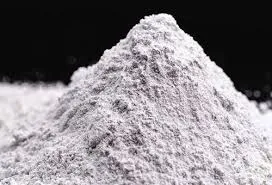
Sep . 30, 2024 01:46 Back to list
Hydroxyethylcellulose Powder Applications and Benefits in Various Industries
Understanding Hydroxyethylcellulose Powder Properties, Uses, and Benefits
Hydroxyethylcellulose (HEC) is a non-ionic, water-soluble polymer derived from cellulose. It is widely used in various industries due to its unique chemical and physical properties. In this article, we will explore the characteristics, applications, and benefits of hydroxyethylcellulose powder.
Properties of Hydroxyethylcellulose
Hydroxyethylcellulose is synthesized through the hydroxyethylation of cellulose, which is a natural polymer obtained from plant cell walls. The process involves the reaction of ethylene oxide with cellulose, resulting in a product that retains the structural integrity of cellulose while providing additional functional properties.
One of the most notable features of HEC is its ability to form high-viscosity solutions. When mixed with water, hydroxyethylcellulose powder dissolves to create clear viscous solutions, which makes it an excellent thickening agent. This property is particularly valuable in industries that require enhanced viscosity for their formulations.
HEC is also highly stable across a wide pH range, which means it can be effectively used in acidic or alkaline formulations without significant degradation. Its temperature stability allows it to maintain its viscosity even under varying thermal conditions. Additionally, HEC is non-toxic and biodegradable, making it an environmentally friendly alternative to many synthetic thickening agents.
Applications of Hydroxyethylcellulose
The versatility of hydroxyethylcellulose powder is reflected in its wide range of applications across different sectors
1. Cosmetics and Personal Care HEC is commonly used in lotions, creams, gels, and shampoos as a thickener, stabilizer, and emulsifier. Its ability to enhance the texture and feel of formulations makes it a preferred ingredient in many beauty products. HEC is also used in hair styling products to provide hold and manageability.
hydroxyethylcellulose powder

2. Pharmaceuticals In the pharmaceutical industry, HEC is utilized as a binder in tablets, as well as a thickening agent in liquid medications. It helps ensure a uniform distribution of active ingredients and enhances the stability of formulations. Its biocompatibility and non-toxic nature make it suitable for various drug delivery systems.
3. Construction HEC is employed in the production of construction materials such as mortars, tile adhesives, and wall coatings. It improves the workability, adhesion, and water retention of the mixtures, contributing to enhanced performance and durability.
4. Food Industry In the food sector, hydroxyethylcellulose is used as a thickening and stabilizing agent in sauces, dressings, and dairy products. It improves the texture and consistency of food items while also extending shelf life.
5. Agriculture HEC plays a role in agricultural formulations, including fertilizers and pesticides, by acting as a suspending agent. It helps maintain the homogeneity of the mixtures and ensures uniform application.
Benefits of Hydroxyethylcellulose
The use of hydroxyethylcellulose powder provides several benefits
- Improved Texture HEC enhances the sensory experience of products by providing a smooth and creamy texture. - Stability Its stability across various conditions ensures that formulations maintain their intended performance and usability. - Environmentally Friendly Being biodegradable and non-toxic, HEC presents a sustainable option compared to many synthetic alternatives. - Versatile Functionality The multifunctional nature of HEC allows it to serve multiple roles within a single formulation, reducing the need for several additives.
Conclusion
Hydroxyethylcellulose powder is a remarkable ingredient that finds applications in numerous industries, ranging from cosmetics to construction. Its unique properties, including viscosity enhancement, stability, and environmental compatibility, make it a valuable asset in formulating a wide array of products. As industries continue to seek innovative and sustainable solutions, the demand for hydroxyethylcellulose is expected to grow, solidifying its position as a versatile and essential polymer in modern formulations.
-
Versatile Hpmc Uses in Different Industries
NewsJun.19,2025
-
Redispersible Powder's Role in Enhancing Durability of Construction Products
NewsJun.19,2025
-
Hydroxyethyl Cellulose Applications Driving Green Industrial Processes
NewsJun.19,2025
-
Exploring Different Redispersible Polymer Powder
NewsJun.19,2025
-
Choosing the Right Mortar Bonding Agent
NewsJun.19,2025
-
Applications and Significance of China Hpmc in Modern Industries
NewsJun.19,2025







